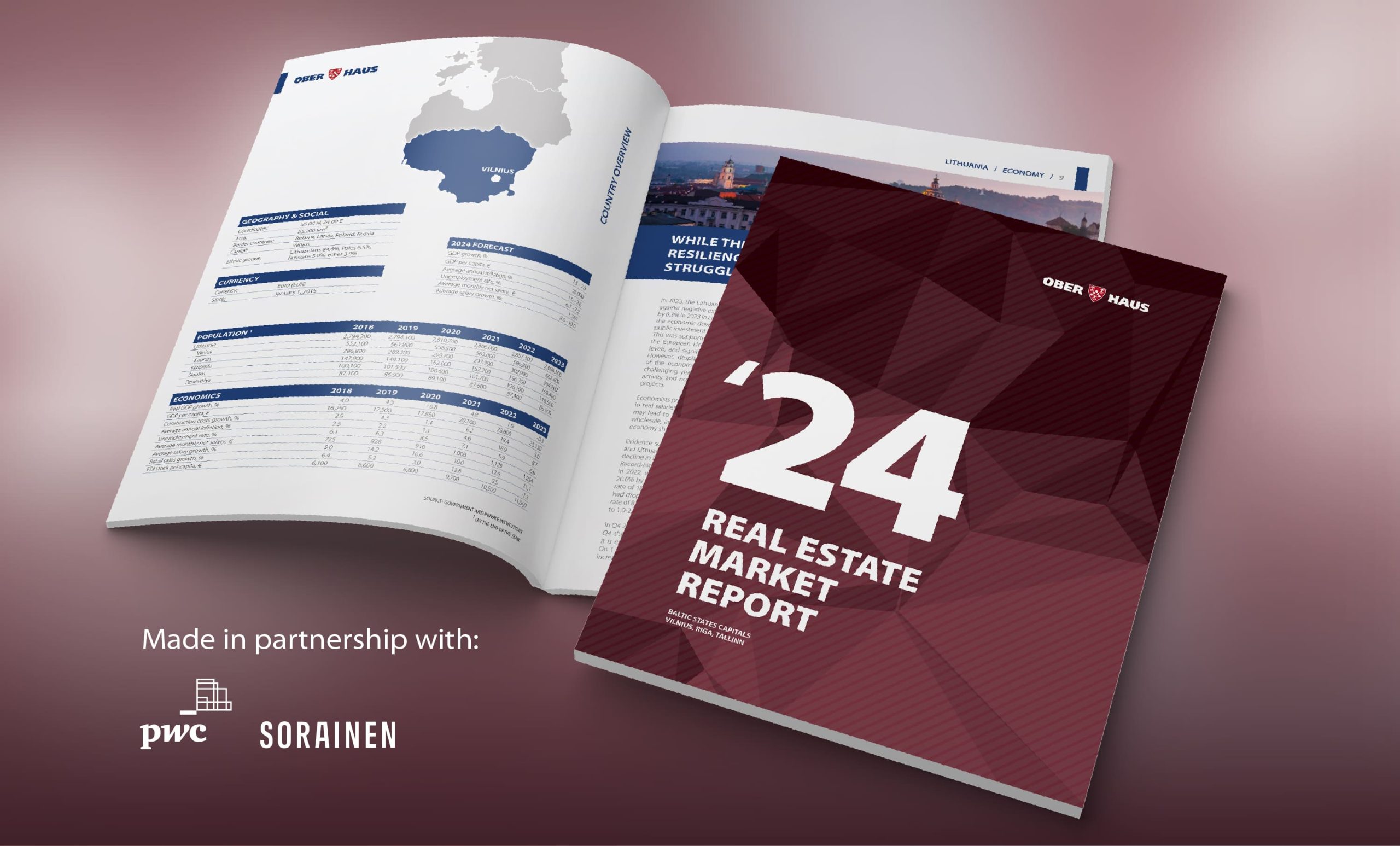Baltic real estate markets are experiencing varying degrees of difficulties, but at the same time they offer opportunities for the most active
2024-06-18

The year 2023 was full of challenges for the Baltic real estate market, the beginnings of which we started to see in 2022. Last year saw a contraction of the Baltic economy, declining residential and commercial real estate market activity, rising unsold housing and office vacancy rates and slowing construction volumes. It is clear that the mood of homebuyers, businesses and investors alike has noticeably softened and confidence in the Baltic real estate market as a whole has further eroded, according to Ober-Haus annual Baltic Capital Real Estate Market Review.
While the general sentiment of real estate market participants is similar across all countries, the overall impact of global factors (Ukraine-Russia war, high inflation, interest rate hikes) differs slightly.
“As the real estate market in Latvia and its capital city has not been growing very fast in the last five years, the impact of the current challenges is not as tangible as in other countries,” says Raimonds Reginis, Research Manager for the Baltics at Ober-Haus. Meanwhile, the Estonian and Lithuanian real estate markets have experienced an investment boom in the post-war period, which has led to a very rapid growth in housing market activity and a surge in prices. Therefore, the slowdown of the last few years has been most pronounced in Lithuania and Estonia, which after a period of rapid growth have moved into a much slower phase of development, which is particularly noticeable among market participants who were already accustomed to a period of record activity. According to Reginis, the market slowdown is particularly noticeable in Estonia, whose economy, after a slight recession in 2022, has contracted by as much as 3% in 2023. And unlike Latvia and Lithuania, Estonia is not expected to recover this year either. This not only leads to a weaker sentiment on the property market in this country, but also affects the general expectations of the population, which remain among the worst in Europe.
However, despite the more challenging period, the Baltic property markets have managed to avoid the worst case scenario, which is usually characterised by a tangible decline in rental or sales prices.
“The fairly stable situation on the labour market, the resumption of real wage growth, the solid savings accumulated by the population and the low overall level of indebtedness have protected real estate market participants from hasty or forced decisions and, at the same time, from negative price changes. However, it is clear that over the last few years, buyers have significantly strengthened their position in the market and are often the ones who dictate the terms rather than sellers. Therefore, sellers who need to dispose of their assets more quickly remain in a more difficult situation,” says Reginis.
The analysis of the housing transactions that have taken place shows that a small number of potential buyers are able to take advantage of this situation and purchase homes even at prices slightly lower than those usually seen on the market. A similar situation is observed in the commercial real estate market, where the number of investors has shrunk considerably (especially foreign investors) and the yield on commercial real estate has risen by around 50-100 basis points in 2023 alone.
The first half of this year has also not given real estate market participants much optimism, as market fundamentals remain at the lows of the last few years and it may take a little longer than previously expected for the real estate market to regain the confidence of market participants. “It is therefore clear that in 2024 both first-time buyers and larger investors will still be able to find attractive offers on the Baltic real estate market. It is important not to miss this opportunity, because the real estate market has not stagnated and there is no shortage of people looking for the best options on the market,” Reginis points out.
Read more in Ober-Haus’ annual Baltic Capitals – Vilnius, Riga and Tallinn Real Estate Market Review 2024, which covers the office, retail, warehouse, residential and land markets in each city. The overview also includes a tax section prepared by the audit, accounting and consulting firm PricewaterhouseCoopers and a legal information section by the law firm Sorainen.
Full review (PDF): Baltics Real Estate Market Report 2024
